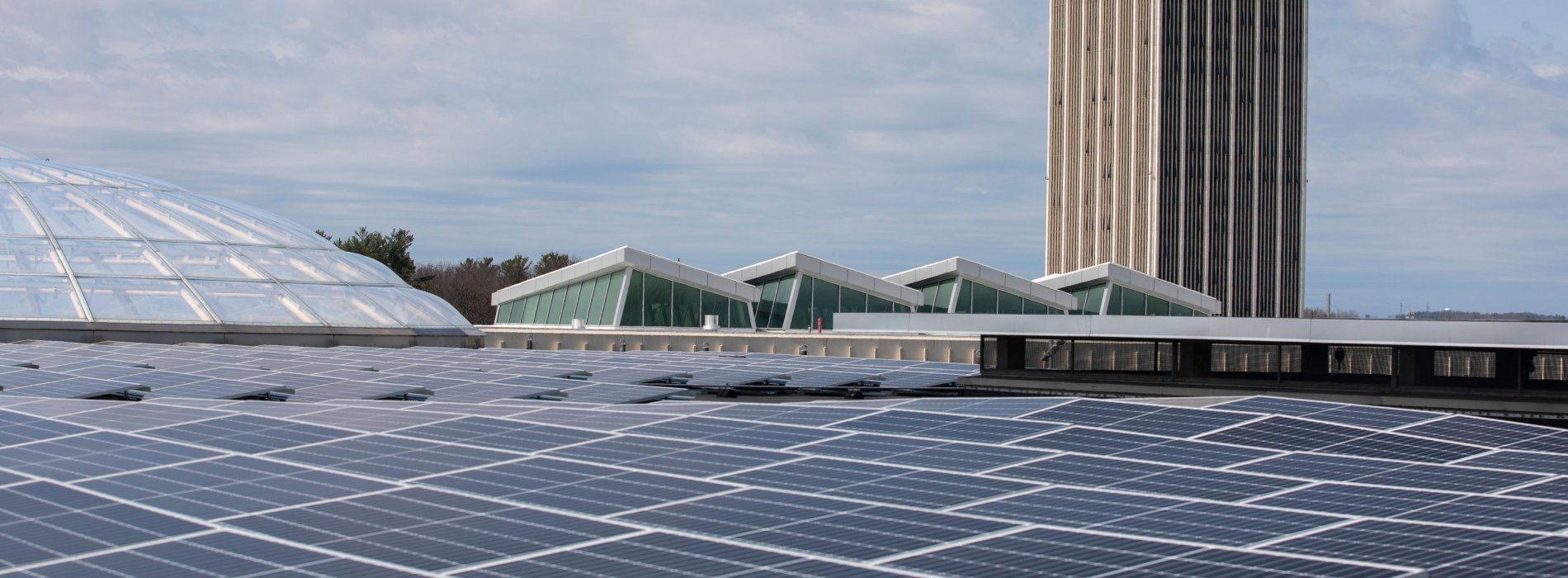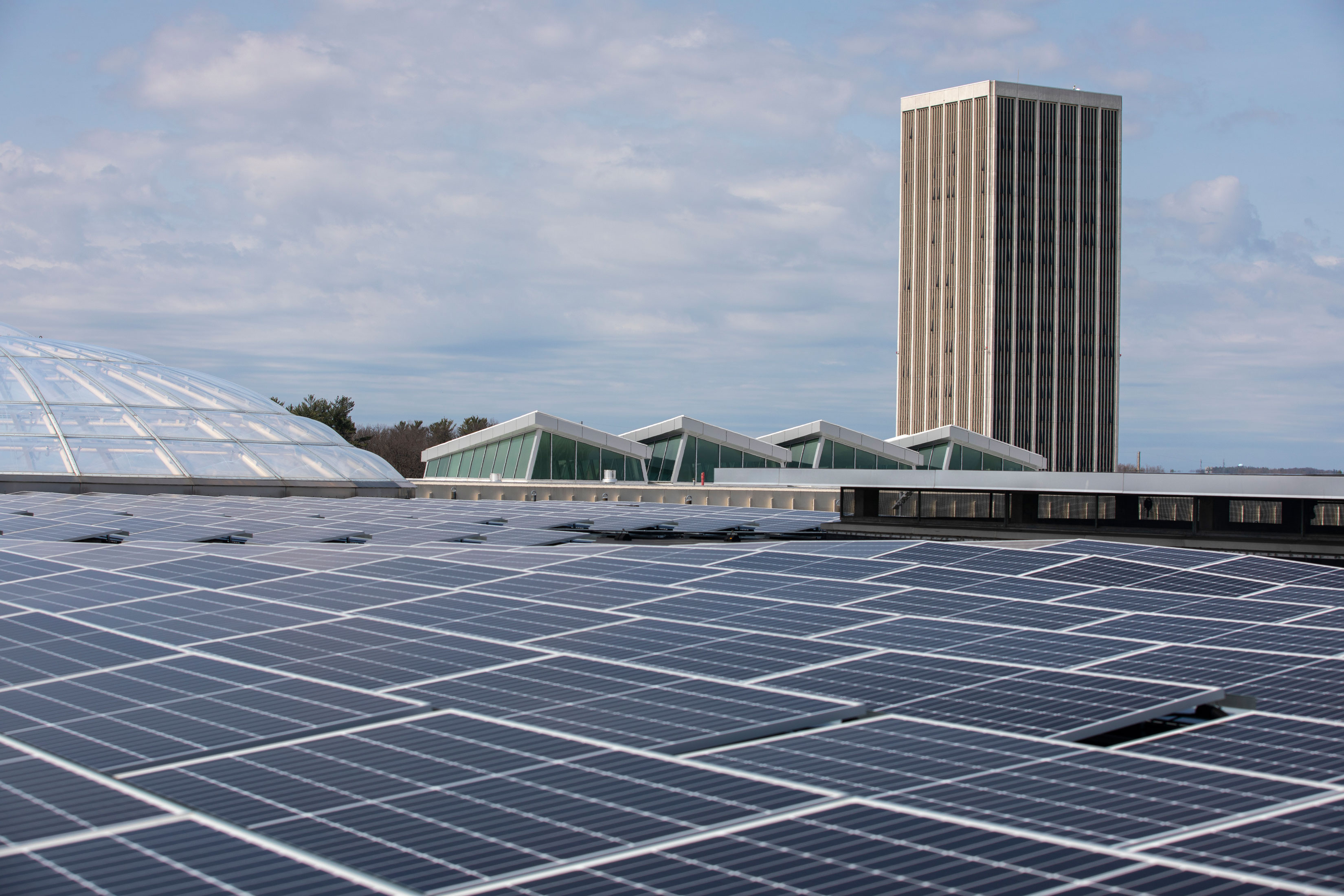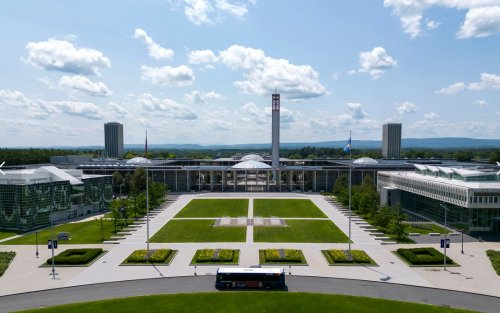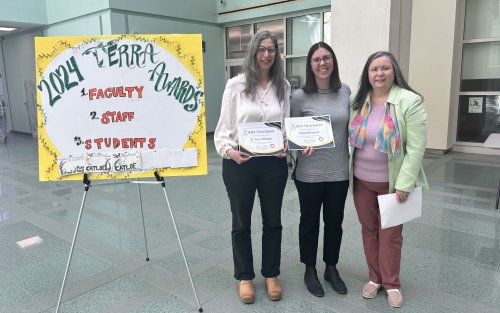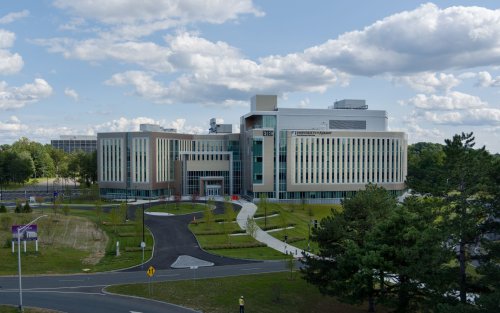Sustainability at UAlbany
As a public higher education institution, the University at Albany has both an obligation and an opportunity to be a leader in sustainability. The Office of Sustainability was founded under the principle that our institution can and should serve as a model for other colleges and universities, as well as for our students and the community around us.
The Office of Sustainability coordinates and advances the sustainability efforts at UAlbany. We work with a multitude of academic departments, student groups and community organizations to implement sustainable advancements and policies aligned with the UN Sustainable Development Goals by:
- Engaging the campus community in educational campaigns and programs
- Furthering coordination among students, faculty and staff around sustainable initiatives
- Encouraging the conservation and efficient use of natural resources on campus
- Advocating for further adoption of sustainable infrastructure
- Increasing awareness of the University's responsibility to operate in an environmentally accountable manner
- Assessing campus sustainability efforts to ensure fulfillment of institutional commitments
At UAlbany, we strive to foster ecological literacy and inspire solutions to global challenges.
Our campus defines sustainability as recognizing one's membership in the broader social and ecological community, exhibiting appreciation of and respect for others and the natural world, and acting justly to preserve the integrity, stability, and beauty of human communities and natural systems.
The Office of Sustainability serves the common good by ensuring that our campus works collaboratively to foster a culture of sustainability, and embody the UN Global Goals, support our regional ecosystem, model sustainable development and create a sustainable way of life on Earth.
The 17 Sustainable Development Goals (SDGs) were created by the United Nations. These goals are unique in that they call for action by all countries, poor, rich and middle-income to promote prosperity while protecting the planet. They recognize that ending poverty must go hand-in-hand with strategies that build economic growth and addresses a range of social needs including education, health, social protection, and job opportunities, while tackling climate change and environmental protection.
Rankings
UAlbany received a Gold Rating from the Association for the Advancement of Sustainability in Higher Education's (AASHE) Sustainability Tracking, Assessment & Rating System (STARS) in 2023. Read UAlbany's STARS report.
UAlbany was ranked the Fourth Most Sustainable University in the United States by the UIGreen Metric World University Rankings in 2023.
UAlbany has been included in Princeton's Guide to Green Colleges since 2012.
Memberships
UAlbany is a member of the following organizations and initiatives:
- Association for the Advancement of Sustainability in Higher Education's (AASHE)
- Second Nature Climate Leadership Network
- New York Coalition for Sustainability in Higher Education (NYCSHE)
- SUNY Sustainability Coalition
- New York State Energy Research & Development Authority's (NYSERDA) Clean Green Campuses
- NYSAR3 College Council
- National Wildlife Federation's Plastic Reduction Partner and Campus Race to Zero Waste programs
- Capital District Clean Communities
Greenhouse Gas Emissions Inventory
UAlbany's greenhouse gas emissions inventory — also known as a carbon footprint — quantifies the University's impact on the atmosphere. It is part of our action steps within the Presidents' Climate Commitment, a component of our Climate Leadership Network membership.



